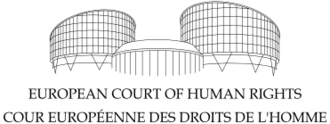From WikiIslam, the online resource on Islam
Jump to navigation
Jump to search
|
|
| Line 235: |
Line 235: |
|
| |
|
|
| |
|
| <option weight="1">{{Pictorial-Islam|1=Accidents and Natural Disasters in the Muslim World|2=[[File:Pakistan-earthquake-4.jpg|190px|link=Accidents and Natural Disasters in the Muslim World]]|3=Many Muslims often gloat and celebrate when an accident or natural disaster befalls the Western and/or non-Muslim world, believing that it is the actions of a vengeful Allah. As Allah's people, Muslims believe they will always be protected by Allah against such calamities. The Qur'an even states that earthquakes are for non-Muslims and occur as the wrath of an angry God. However accidents and natural disasters happen very often in Muslim countries and Allah seems to turn a blind eye when disaster strikes, even when they occur during the Hajj in Mecca, where Islam's holiest site, the Ka'aba, is located. ([[Accidents and Natural Disasters in the Muslim World|''read more'']])}}</option> | | <option weight="1">{{Pictorial-Islam|1=Accidents and Natural Disasters in the Muslim World|2=[[File:400px-24 - Destroyed mosque.jpg|180px|link=Accidents and Natural Disasters in the Muslim World]]|3=Many Muslims often gloat and celebrate when an accident or natural disaster befalls the Western and/or non-Muslim world, believing that it is the actions of a vengeful Allah. As Allah's people, Muslims believe they will always be protected by Allah against such calamities. The Qur'an even states that earthquakes are for non-Muslims and occur as the wrath of an angry God. However accidents and natural disasters happen very often in Muslim countries and Allah seems to turn a blind eye when disaster strikes, even when they occur during the Hajj in Mecca, where Islam's holiest site, the Ka'aba, is located. ([[Accidents and Natural Disasters in the Muslim World|''read more'']])}}</option> |
|
| |
|
|
| |
|
Revision as of 20:08, 5 January 2014
Also see: Template:Pictorial-Islam
European Court of Human Rights on Shari'ah Law
|
|

|
|
With the banning of the Welfare Party (Refah Partisi, RP), an Islamist political party in Turkey, and a further sanction in the form of a ban on its leaders sitting in Parliament or holding certain other forms of political office for a period of five years, the European Court of Human Rights determined on July 31, 2001, that "the institution of Sharia law and a theocratic regime, were incompatible with the requirements of a democratic society." (read more)
|
|
|
